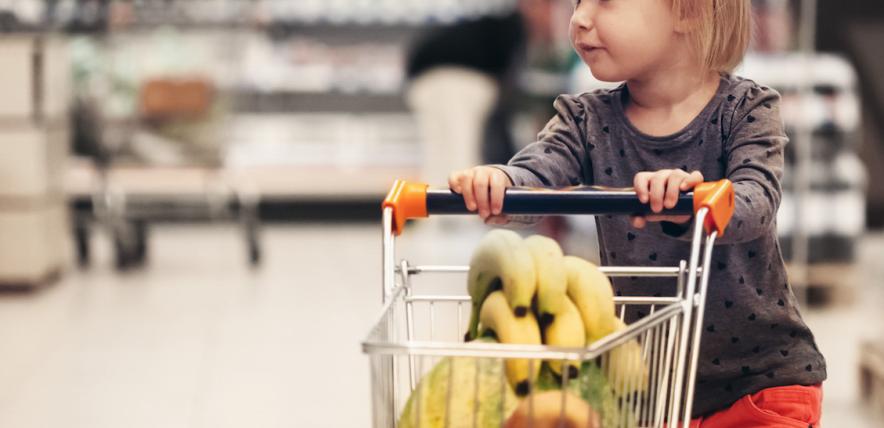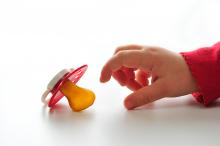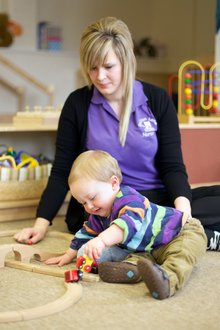Fairtrade Fortnight is a good opportunity to explore all sorts of subjects with your toddler or pre-schooler – ranging from food, health, the environment, weather, different countries - and opening their minds to the world around them.
At the same time, they will be encouraged to think about where their food comes from, who grows it and whether it needs sunshine or rain (or perhaps a bit of both!).
It is also an opportunity to get them to think about how the food we eat every day ends up in supermarkets and the journey it might take to get there.
Lacking basic knowledge about food
Research has shown that many UK children are growing up unaware of where the food they eat originates.
A study published in 2017 found that one in five children aged five to seven years thought milk came from a carton or the fridge but did not know that it comes from a cow, while another report found revealed that young children “lacked basic knowledge” about food, including believing that cheese comes from a plant and that fish fingers were made of chicken.
These misconceptions were most common among who live in towns and cities and had never visited the countryside or seen a farm.
The National Farmers’ Union urged adults to talk to children from an early age about the origins of the food they eat, to prevent such misunderstandings as they grow up.
Childminder Kat Harris uses fairtrade events as a hook to discuss issues around food and eating in her setting, while at the same time linking these to the teaching of literacy.
“A is for apple, B is for banana, C is for cocoa, D is for dates and so on, is a great place to start these conversations with young children,” she said. “In previous years we have tried to name a foodstuff using each letter of the alphabet – though it can get difficult as you go through the letters - and then we’ve grouped them into whether or not the children think they’re grown in this country.
“Often – as in D for dates or dragon fruit – the children might not have heard of such a fruit or vegetable before, so we might do some food tasting.
“Youngsters are so used to seeing fruit and vegetables in shops that they don’t even think about where they were grown or how they came to be weighed and bagged up. It’s often a source of great surprise and excitement when they find that bananas have travelled thousands of miles, but that there are many varieties of applies grown right here – sometimes in their own gardens.”
Teaching a sense of fairness
The concept of “fairness” has also prompted some interesting insights, even with very young children who feel a keen instinctive sense of justice.
“I’ve used role play and stories to get the children to think about what is fair and making sure that people don’t feel cheated. This might include talking about cheating while playing a game they enjoy or having a precious possession taken from them and that person refusing to give it back.
“To illustrate the plight of hard-working farmers in some poor and developing countries, I’ve asked them to think about how hard their own mummies and daddies work to have enough money to buy them food and toys, and to take them on nice day trips and holidays.
“But imagine how they would feel if their parents were then told they will get a loss less money for their work than they are entitled to, making it difficult for the family to buy food, and to keep their house warm in winter.
“This is what happens to farmers in many parts of the world, which is why we need an organisation like Fair Trade – to make sure that people who work hard to feed the world are properly rewarded by those in wealthier countries.”
Introducing responsible habits
Kat believes that fairtrade activities are also a great way of helping to create responsible and mindful consumers of the future.
“The event offers so many opportunities for teaching good habits, not least about shopping,” she said.
“In previous years, we have engaged parents and asked them to turn it into a bit of a game by looking out for items and products carrying the fairtrade symbol when going round the supermarket with their children and to make a list of the different things they find – such as coffee, tea and chocolate. Even cut flowers and the cotton we make into clothes sometimes carry a fairtrade sticker.
“It’s a great way of making that trip to the shops a bit more interesting and fun, while raising awareness of what foods are available, and identifying which farmers or growers are protected by fairtrade practices.
“Teaching that sort of social responsibility early on can last a lifetime, too – as I have found with my own children who, although now teenagers, still automatically look out for Fair Trade products when they go shopping.”
Useful links
Fairtrade Schools: Take Action
Fun Kids Live: F is for Fairtrade
Friends of the Earth: Benefits of Fairtrade








